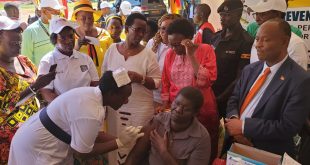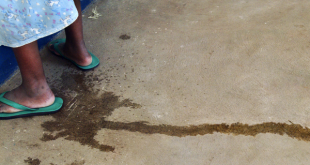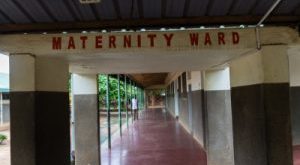
BY ACHORA GEOFREY
PAKWACH: MONDAY, OCTOBER 24, 2022
In the rural communities of Pakwach district, adoption of solar power is slowly taking root, supplementing wood fuel and charcoal, the primary sources of household energy.
Residents say this is because many private players in the solar energy sector are promoting the use of climate-friendly energy in form of renewable energy options.
The aim is to mitigate associated environmental and health problems including deforestation, the destruction of wetlands and (indoor) air pollution.
The interventions are also helping to boost the local economy through cheap, reliable and affordable source of energy.
Eunice Ongiera, a food vendor in Panyimur, acknowledged that she has been spending highly on the purchase of firewood for cooking that emits carbons and is time consuming.
“The cost of firewood ranges from sh5,000 a bundle and upwards and sometimes I have lost some of my customers due to late delivery of food to their work places,” Ongiera said.
She said this prompted her to embrace the idea of cooking using gas and solar for lighting,but those facilities can only be got easily from the town.
Another drawback, noted Ongiera, is lack of awareness on the use of such modern power systems for which she calls on the government and community leaders to prepare the people.
But for Onenarach Okwera, a school proprietor Paroketo secondary school in Pakwach town, the use of solar for lighting has saved his school from incurring exorbitant electricity bills.
He said prior to adopting and installing solar panels, the school was burdened and indebted with an estimate of sh800,000 power bills per term.
“My advice to the government is help people to embrace the transition to renewable energy like solar. We are now able to save financially and there is time for the students to study at their own convenience,” he said.
In recent years, the Ugandan government has promoted solar energy through tax breaks and consumer subsidies as well as rural electrification projects.
More than 200 companies, including foreign investors, are active in the Ugandan PV and solar thermal field.
Hellen Katushabe, a yogurt and fresh fish seller in Pakwach town, reiterated that shifting to solar energy is a preparation towards commercialization and promotion of grassroots prosperity
She however noted that the slow response by solar companies to provide long lasting panels and batteries is making most people to cast doubt over the efficiency and this has made some to resort to using it on small scale for lighting in households
“Solar is good but it requires expensive technology to convert it into electricity and thieves target it especially at night,” Katushabe said.
According to Jenifer Oweka, the Pakwach district Natural and Environmental officer, the growing population is exerting pressure on the existing natural resources as people search for food and habitation.
Oweka said the majority of the population is poor as reflected in the energy consumption patterns including use of solar and fossil fuel.
She encouraged the use of solar over other sources, saying that it would save you monthly electricity bills and is safe and environmentally friendly.

But Okweka cautioned that much as the district encourages the community to embrace solar use, they are cognizant of their quality issues, thus supplying companies must conform to the standards to avoid duping consumers.
“The community mainly use the solar on small scale for lighting. It is only a handful of companies with large machines that consume power excessively that install solar as alternative source,” she added.
However, Oweka pointed out that, whereas some members of the community are installing solar to meet their domestic and commercial demands, those who are unable to purchase solar systems are condemned to erratic loading shedding and power cuts which is undermining people’s businesses.
The remaining majority of the population is compelled to use firewood and charcoal for cooking and candle wax and kerosene for lighting.
Fred Ndawula, a solar panel and battery seller in Pakwach town, said the region is blessed with sunshine that is well distributed throughout the year that solar systems offer the best option for purposes of cooking food, heating water, refrigeration and irrigation for hotels, school, offices and farmers.
Investment Opportunities for Companies
According to National Association of Environmentalist,Uganda’s population is under-served within the energy sector that the country is among the top 20 access deficient countries with 26 million people not having access to electricity as of 2019.
The electricity connection policy introduced in 2018 aims to increase Uganda’s electricity access to 60% by 2027. As of 2019 the urban electricity access rate was 71% and rural electricity access rate was 32%.
The above paints a picture of a country that has the potential for renewable energy to meet its energy needs.
As of April 2018, the Electricity Regulatory Authority had listed opportunities within large and small hydro, biomass, geothermal, solar and wind energy. It also references the capacity to develop waste into energy.



